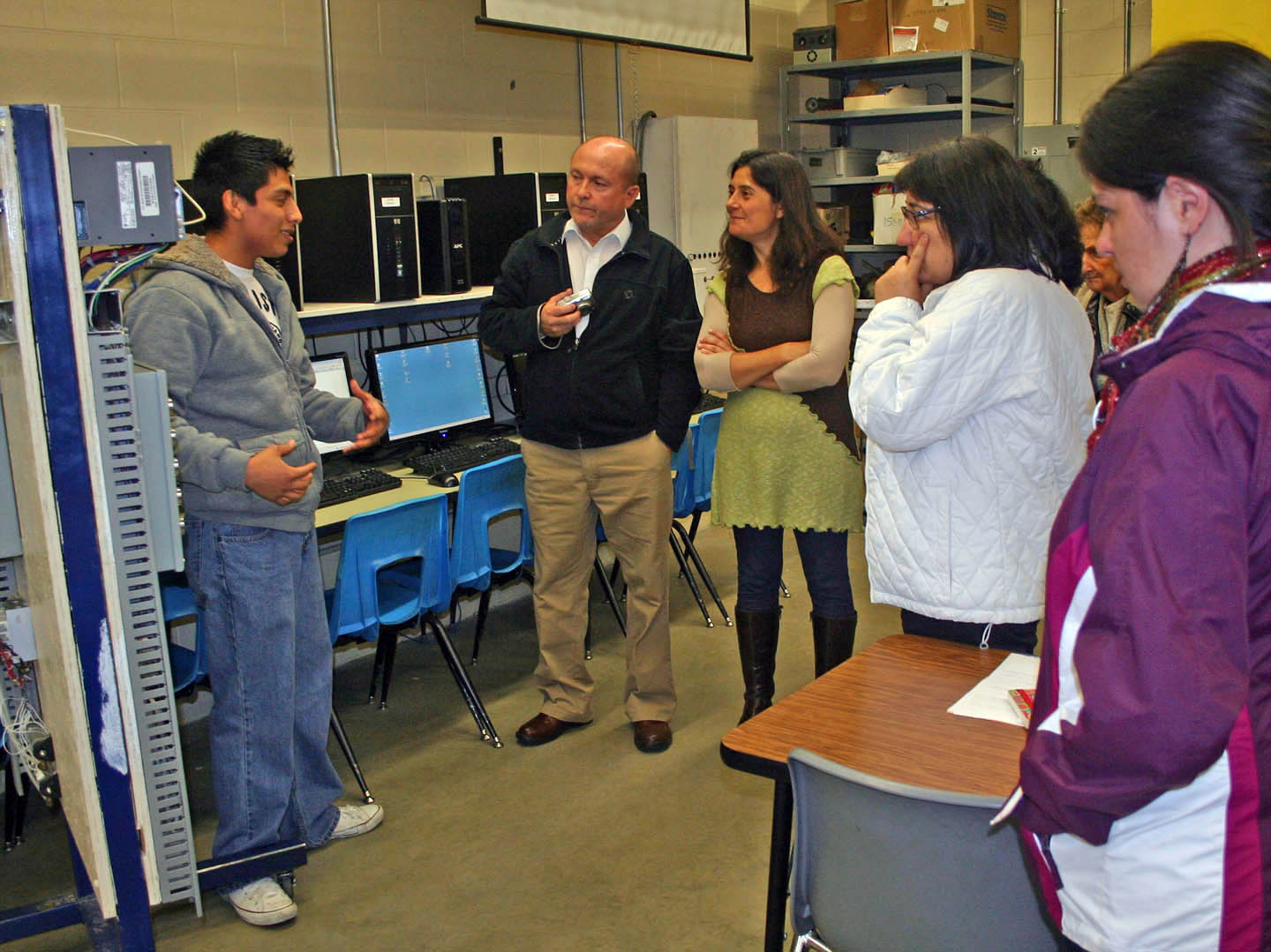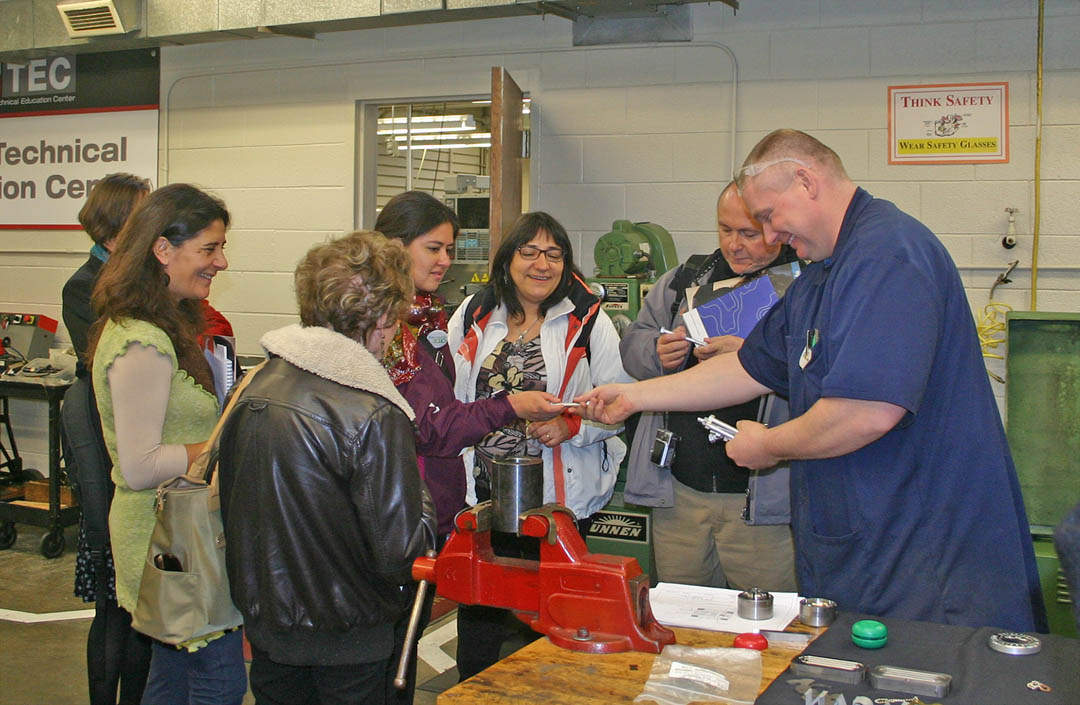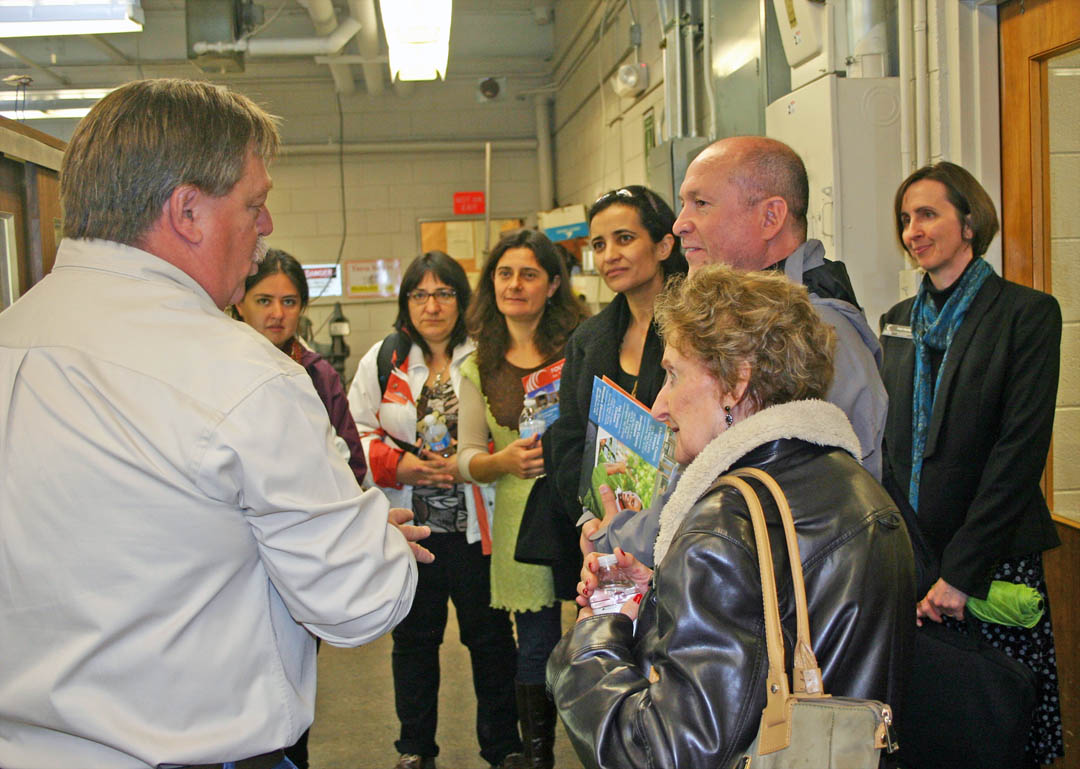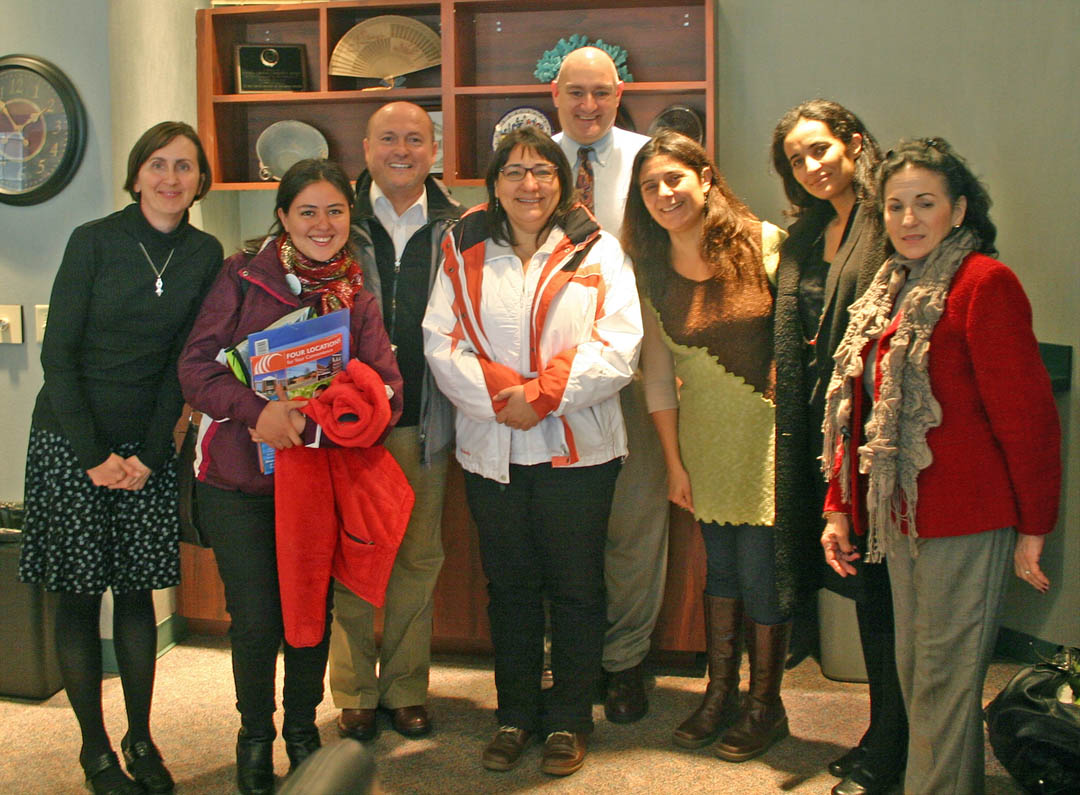College News
Chileans impressed with CCCC
Notice: This article is older than 12 months. Names, contact information, programs, titles, etc. might have changed. If you have any problems please call the main college number, 1-800-682-8353, and we will be happy to direct you accordingly.

click image to enlarge ⊗
Central Carolina Community College Industrial Systems Technology student Fernando Estrada (left), ... (more)

click image to enlarge ⊗
Representatives from two education-promoting organizations in Santiago, Chile, visited Central Carolina ... (more)

click image to enlarge ⊗
Edwin Thomas (left), chair of Central Carolina Community College's Computer Integrated Machining Department, ... (more)

click image to enlarge ⊗
Representatives from two education-promoting organizations in Santiago, Chile, visited Central Carolina ... (more)
01.17.2013 • College & Community • Special Events
SANFORD - Almost 5,000 miles separate Santiago, Chile, from Central Carolina Community College, but a delegation of representatives from education-promoting organizations in that country were at CCCC on Jan. 15.
The representatives were from Fundacion Chile and Educacion 2020, non-profit organizations that work for improvement in quality of and accessibility to education in Chile, especially vocational-technical education.
They came to gain a better understanding of how educational institutions in the greater Raleigh area prepare students for success. They visited high schools, universities, and community colleges to gain ideas to take back home. CCCC and Wake Tech were the only community colleges on their itinerary.
At CCCC, the delegation heard how its vocational programs coordinate with industry to keep training up-to-date, how programs and equipment are paid for, how the instructors teach, and how to counsel and motivate students to encourage them to be successful in their studies.
They also received an overview of the diversity of the college's programs, from adult literacy to vocational education to university transfer. They visited and learned about several programs: Industrial Systems Technology, Computer Integrated Machining, and Veterinary Medical Technology.
The Chilean delegation was particularly interested in how the college works with high schools, enabling students to take courses while still in high school, continue at the community college, and then go into the workforce or on to a four-year institution.
That the college maintains working relationships with industry impressed the visitors. They learned that CCCC can train students in the skills industry needs on equipment industry uses as well as provide training for current industry employees to upgrade their workforce skills.
They learned about the Caterpillar Youth Apprenticeship Program in Welding, a major partnership of the college with Caterpillar, N.C. Department of Labor and Lee County Schools. While still in high school, students in that program take welding classes at CCCC, then train at Caterpillar and work as paid apprentices over the summer. The program allows a seamless transition from high school to community college to a skilled, well-paying career.
"We would love to have something like the Caterpillar program in Chile, especially in mining," said delegation member Maria Ramirez Espinoza. She is the Educational and Political researcher for Educacion 2020.
She added that Chile doesn't have American-style community colleges.
"What we have seen today is very impressive," she said. "What impressed me most was that the college uses so well every resource it has. Every penny is managed because it is so concerned about its students. We can do that in Chile."
Representatives from Fundacion Chile's Center for Innovation in Education were Vanessa Arevalo Sciaraffia, the head of the Better School and Better Technical Vocational High School Program; Patricio Traslavina Arancibia, coordinator of the Better School Program; and Angelica Fuenzalida Ramirez, director of the Educational Technical Assistance Program.
"You showed us what a community college is, the diversity of its aspects, and how it models new innovations" Fuenzalida Ramirez said. "We can test these in Chile."
Leila Bekri, International Visitor Leadership Program director for the International Affairs Council, in Raleigh, accompanied the delegation. The IAC arranged for their visit in coordination with the U.S. Department of State's International Visitor Leadership Program.
"I appreciate that the CCCC instructors we heard from today are passionate and convey their knowledge in a very intelligible way," Bekri said. "They have a personal dedication to what they do and it is felt."
Rosemarie Aragon and Linda Ruiz-Laverty, Spanish-English interpreters for the State Department, also accompanied the delegation.
Categories
- Admin, Faculty & Staff Category
- Arts & Entertainment Category
- Clubs Category
- College & Community Category
- College General Category
- Continuing Education Category
- Curriculum Programs Category
- Distance Education Programs Category
- Facilities/Buildings Category
- Finances Category
- Foundation Category
- Graduations Category
- Lee Early College Category
- NCCCS Category
- SGA Category
- Special Events Category
- Sports Category
- Students/Graduates Category
- Uncategorized Category
Archives

